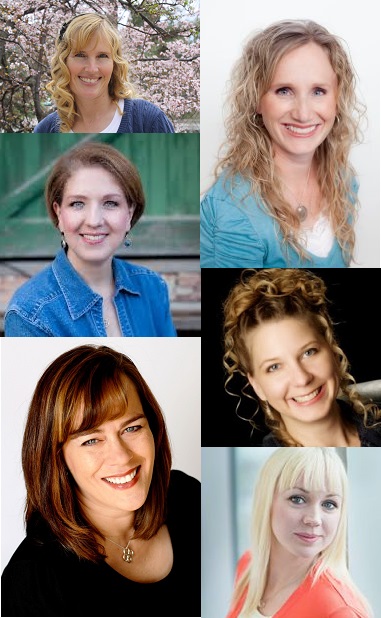by Annette Lyon
Earlier this week, I had the chance to speak to a high school creative writing class. One question I got:
What to do when you have several partial books, but keep running into road blocks, so you abandon the story and start another one?
This young woman had several partial books, but not one finished one. What to do?
Here's the advice I gave, plus a bit more (since I have more time here):
Two pieces of advice:
1) Read up on plot structure.
Chances are, the plot ran into a ditch because you don't know where it was supposed to go or how to steer it. That doesn't mean you have to outline everything, but it does mean understanding how plots work: their structure.
Some writing books I recommend:
Scene and Structure, by Jack Bickham
This book pretty much blew my mind back when I first read it in about 2004. It's a great resource for teaching structure on a scene/sequel level. (If you don't know what a sequel is, you need this book.) It goes into scene questions and the possible answers, how to fix wrong turns, and how to find the crux of the story. Fantastic.
The Writer's Journey, by Christopher Vogler
Another book that had my head spinning. But when I finally got my bearings, it proved immensely useful. It's actually a screenwriting book that uses the classic Hero's Journey as a model. Many people think the archetypal Hero's Journey belongs solidly in fantasy and science fiction, but not so.
The first book I drafted after reading this book (a historical romance) was the easiest book I've ever drafted. I often looked at the plot and pondered what was missing or how I could improve this or that based on archetypal characters and Hero's Journey elements. And I always found a solution.
Story, by Robert McKee
A couple of years ago at a writing conference I attended, I heard this book referred to over and over again, so I finally jotted down the title and author and ordered it.
Story Engineering, by Larry Brooks
I've heard mixed reviews here, some people saying it's their new writing bible, while others say it's stuff they've already heard (the latter is generally from writer veterans).
Save the Cat, by Blake Snyder
Yet another screenwriting book. I've found that learning about story structure through film is easier to grasp than on a book level: you can watch a movie in a couple of hours and watch the elements unfold. It's also easier for writers to refer to movies and have a good chance that the readers have seen many of them and therefore understand the concepts. Another writing bible here.
Read Industry Blogs
When I first started writing in 1994, most people didn't have e-mail addresses, let alone access to the massive amounts of information available on the Internet today. Now, you can consult Dr. Google to learn just about anything.
Need to know how to craft a query letter? How advances and royalties work? The difference between genres and markets? The answers are a search away.
A few great blogs to get you started (be sure to check the archives for questions that may have already been answered):
- Janet Reid
- Query Shark (A query critique blog run by Janet Reid)
- Rachelle Gardner
- BookEnds
- Nathan Bransford
- Steven Pressfield
Podcasts
Sometimes hearing it from the horse's mouth (from people already successful in the field) is more helpful than anything. Podcasts are typically short (15 to 30 minutes). I'll download several episodes to my iPod and listen as I clean house or drive.
Some particularly useful podcasts:
- The Appendix (About to take a hiatus, but it's got a great archive. Also: I've been a guest a few times!)
- Writing Excuses (With big-time writers like Brandon Sanderson, Dan Wells, Howard Taylor, and Mary Robinette Kowal)
- Word Play (Especially for MG and YA writers, with Nathan Bransford, James Dashner, and J. Scott Savage)
2) My other piece of advice is to plant your behind in the chair and write.
There's nothing like actually finishing a manuscript, even if it's not the best. Coming to the end of a story is an accomplishment unlike any other, and it gives you the vision that yes, you can succeed. And do it again.
If you need a kick in the pants to keep yourself writing, order, read, highlight, and keep at your fingertips for further reading Steven Pressfield's The War of Art.
You'll thank me on that one.







1 comment:
Great suggestions here, Annette. I'm doing NaNo this year and they got Brandon Sanderson to do a pep talk. One of the things he said in the email was:
"Finishing one book is more valuable than a dozen creative writing courses and a thousand books started."
I love your suggestions for ways to find out what's going wrong. And I love the idea of pushing through until the dang book is finished.
Post a Comment